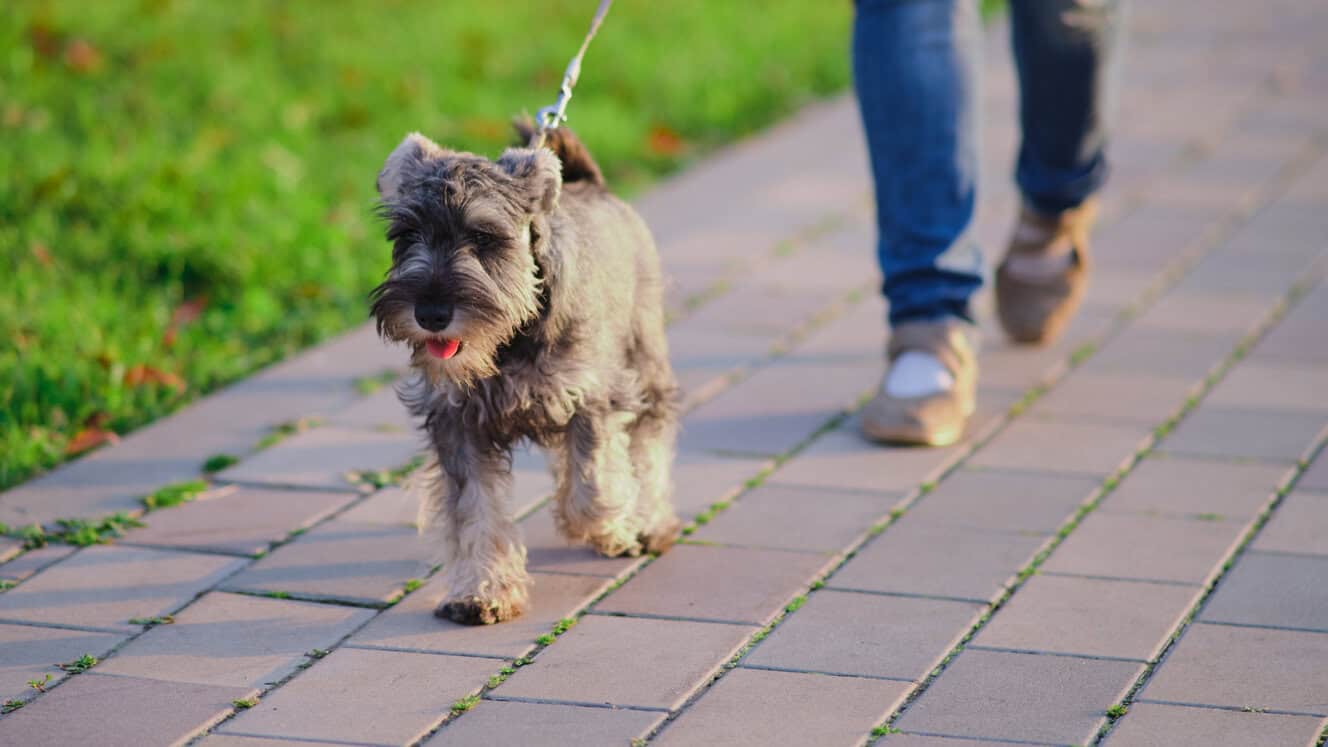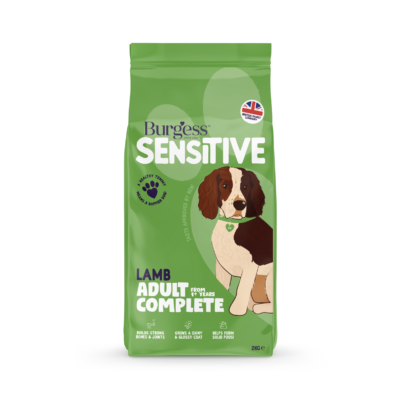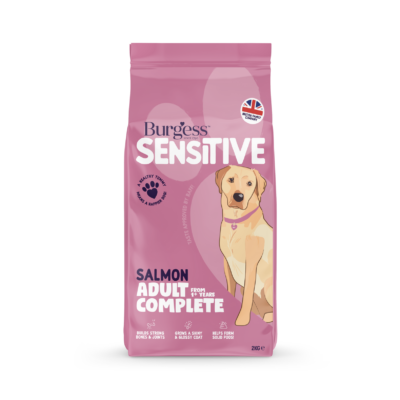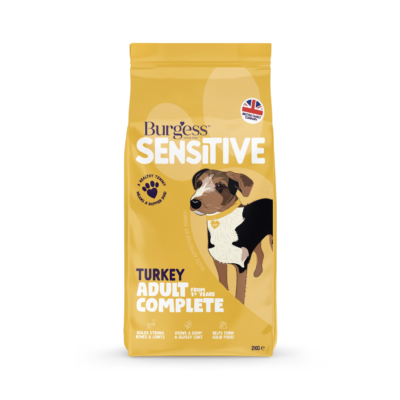
Described by The Kennel Club as “hugely popular as companion dogs,” the intelligent and affectionate Miniature Schnauzer continues to ride high in the dog breed popularity charts – and it’s easy to see why.
Sturdily built, with a keen, Gromit-like expression, a distinctive beard and endearingly bushy eyebrows, there’s nothing smarter than a well-groomed Mini Schnauzer. Primarily a companion dog, their character and temperament is depicted by The Kennel Club as: “Well balanced, smart, stylish and adaptable. Alert, reliable and intelligent.”
“With his quirky looks and huge personality, this hardy little dog has it all,” adds Your Dog.
According to Petplan: “The Miniature Schnauzer’s distinctive ‘whiskers and beard’ give it a wise appearance – and it is indeed a clever and alert breed. They are robust and fairly vocal, as well as adaptable and family-friendly, with a personality twice their size!”
What’s the best food for a Miniature Schnauzer puppy? >>
Mini Schnauzers are descended from the Standard Schnauzer (the name means ‘whiskered snout’), which has been known in Germany from at least the 14th Century.
Your Dog reveals: “It is believed that the Miniature Schnauzer was developed from the Standard Schnauzer, which was cross bred with the Affenpinscher and the Poodle. It was officially recognised as a separate breed in 1933. The Miniature Schnauzer was originally bred by farmers to hunt vermin, as well as for guarding property and livestock. Each type of Schnauzer has the long-bearded muzzle, developed to protect their faces from any retaliation from their prey.”
Miniature Schnauzer health concerns
While generally a healthy breed, here are some health concerns to consider with these smart little dogs. Mini Schnauzers can suffer from heart murmurs, diabetes, liver disorders and pancreatitis – so providing a healthy diet, avoiding fatty foods and regular check-ups with your vet to ensure early diagnosis of any problems are essential.
Petplan says: “Like all breeds, Miniature Schnauzers are prone to certain conditions, and choosing a reputable breeder or rehoming organisation should be the first step to having a happy and healthy dog.”
As is common with other small breeds, Mini Schnauzers can develop dental and mouth issues, particularly gum disease, so regular dental descales at the vets and at home tooth brushing are important.
Petplan explains: “Because of their smaller mouths they are more likely to have overcrowding, and food, bacteria and minerals can accumulate on the gum line. This causes a build-up of 'tartar' which eventually affects the gum causing 'gingivitis', this means small spaces between the gum and teeth are formed where bacteria grow and results in periodontal disease. The bacteria from infected gums can spread around the body and damage the liver and kidneys.”
What’s the best food for Miniature Schnauzers? >>
Dogs Trust advises: “Whatever the breed, all dogs need basic preventative health care like vaccinations and flea and worming treatments. You’ll also need insurance to help cover the cost of vet bills.”
Understanding what makes your Miniature Schnauzer tick will help you give them everything they need to love life! Read on to discover more about:
- MINIATURE SCHNAUZER PERSONALITY PROFILE
- IS MY HOME SUITABLE FOR A MINIATURE SCHNAUZER?
- HOW MUCH EXERCISE DOES A MINIATURE SCHNAUZER NEED?
- WHAT SHOULD I FEED A MINIATURE SCHNAUZER DOG?
- HOW MUCH GROOMING DOES A MINIATURE SCHNAUZER NEED?
- WHAT’S THE BEST WAY TO TRAIN A MINIATURE SCHNAUZER?
- GETTING A MINIATURE SCHNAUZER
MINIATURE SCHNAUZER PERSONALITY PROFILE
Describing this small, sturdy breed as having “bags of personality,” Your Dog says: “Miniature Schnauzers are very sociable and friendly,” adding that they have “excellent reputations as watchdogs – they can be quite vocal.”
Spirited and fearless, with plenty to say for themselves, their robust, muscular looks belie a loving, loyal nature. “Miniature Schnauzers’ gruff appearance and tendency to bark can make these dogs look less cuddly than other breeds,” notes Petplan. “However, the Miniature Schnauzer’s appearance couldn’t be more deceptive, and this breed is incredibly affectionate and thrives when in the heart of the family.”
“In the Miniature Schnauzer you will have a loyal and loving dog that will be a friend for life,” adds the Miniature Schnauzer Club. “As a family dog the breed is par excellence and has much to offer being a handy and easy to manage size as well as having a splendid character and temperament which adapts to its owner’s lifestyle. The sturdy frame and solid body along with a balanced outlook, ensures he enjoys life to the full and is game for anything.”
Crate training a Miniature Schnauzer puppy – make it their special place >>
Whatever the breed, every dog is unique
While each breed has certain identifiable traits, it’s important to remember that every dog is unique.
Dogs Trust says “Just like you, every dog is an individual with their own personality and prior experiences. So, every Miniature Schnauzer temperament is different. As dogs grow from puppies, they learn all about the world. They develop their own likes and dislikes and learn to respond to situations in different ways. For example, some dogs might like meeting other dogs, and some may not. Some might like new experiences and others may need to go slowly.”
As with all dogs, socialisation is very important. Socialising your Mini Schnauzer from a young age with a variety of people, other canines and experiences with help them develop into a confident and happy adult.
Want just YOUR dog to come when you call them? Choose their name wisely! >>
IS MY HOME SUITABLE FOR A MINIATURE SCHNAUZER?
To create a perfect canine/human partnership, it’s vital to think about what kind of energy and temperament you’d like your four-pawed friend to have so you’re a good match for each other – and that you can provide a suitable environment.
The Kennel Club recommends that adaptable Miniature Schnauzers are quite happy in a small house, flat or apartment with a small/medium garden in a town or country setting.
These people-loving dogs do, however, need someone to be around most of the time. Petplan advises: “Miniature Schnauzers are very sociable and outgoing dogs and don’t tolerate being left alone very well. If you do have to leave your Miniature Schnauzer alone for a few hours, make sure they have plenty of toys available to keep them occupied and consider having someone come round and check in on them.”
Which breed of dog is the right fit for you and the place that you live? >>
You will also need to channel their boundless energy in creative ways. Digging is a favourite pastime for Schnauzers, and your garden is likely to take a hit! A good idea is to create their own designated digging spot and make it into a game: “Miniature Schnauzers will love finding buried treasure, in the form of their favourite toy, in a sandbox or on the beach,” suggests Petplan.
And, if you’re interested in taking part in some organised canine activities, your Mini Schnauzer will thrive. Petplan adds: “These versatile dogs also excel at obedience and agility training.”
Mini Schnauzers and other pets
Mini Schnauzers are generally happiest as the only pet in the home. Petplan advises: “Miniature Schnauzers can get on well with cats, provided they are introduced carefully and from an early age. However, this tends to be the exception and not the rule; Miniature Schnauzers have a high prey drive and will often chase smaller animals, including cats. As this is an instinctive behaviour, it can be difficult to train out and is likely to be distressing for other pets.”
Can cats and dogs be friends? >>
Predominately ‘people’ dogs, providing they have been well-socialised from a young age, Mini Schnauzers will generally get along with other dogs, although they may be picky about who their friends are and will ‘answer back’ if another canine challenges them.
Mini Schnauzers and children
“Miniature Schnauzers are playful and inquisitive dogs. They can get on well with children if they’re introduced at an early age,” notes PDSA.
“Every dog has their own unique personality that has been shaped by their own experiences of the world. They’ll have their own likes and dislikes and will respond to situations in different ways. However, there are some universal ways to behave safely around them and treat them with respect,” advises Dogs Trust, which offers family workshops on living happily together.
The family dog – making it work for pets and children >>
HOW MUCH EXERCISE DOES A MINIATURE SCHNAUZER NEED?
If you enjoy regular brisk walks, then a Mini Schnauzer could be your perfect canine companion.
Dogs Trust says: “Schnauzers are typically high-energy dogs who need lots of exercise to keep them physically and mentally healthy. They'll need daily walks, plus plenty of time and opportunity to explore, burn energy, and play.”
“Miniature Schnauzers need around an hour of exercise daily to keep them happy, comments PDSA, adding: “They can be stubborn so will need patience and commitment when training.”
How much exercise do different dog breeds need? >>
WHAT SHOULD I FEED A MINIATURE SCHNAUZER?
Burgess in-house vet, Dr Suzanne Moyes MVB MRCVS, who oversees recipe development and product production, advises: “When choosing food for Miniature Schnauzers, it’s essential to bear in mind that the optimum diet for your dog is one that supplies the correct number of calories and balance of nutrients for their life stage and lifestyle. This means calculating the nutrient content and dietary components such as protein, fat, carbohydrate and vitamins and minerals required. All Burgess Dog Food is a complete food. This means, whatever variety you choose for your Mini Schnauzer, it will contain all the nutrients they need in the correct balance.”
The benefits of feeding a diet specially developed for a sensitive digestion
And, as Mini Schnauzers can be prone to pancreatitis (where the pancreas – an organ that produces enzymes to assist in food digestion and hormones such as insulin, which regulates blood sugar – becomes inflamed), choosing a food that’s specially designed for sensitive digestions could be beneficial.
Dr Moyes adds: “Dogs with delicate digestion need sensitive dog food that’s made without many ingredients known to cause upset tummies. These ingredients can include beef, eggs, dairy, wheat, maize, and soya. For many canines with digestive issues, switching to a sensitive or hypoallergenic variety, depending on what your vet recommends, can make a world of difference to them.”
Your Miniature Schnauzer will also benefit from feeding a variety of food that’s designed to meet their nutritional requirements throughout their life. Puppies need extra energy and other nutrients to support rapid growth. For adult dogs, providing a nutritionally balanced, complete diet will help keep them in tip top condition during the prime of their life. Many older dogs develop specific conditions, such as arthritis – some of which can be eased by feeding a diet designed just for them.
How much should I feed my dog? >>
It's generally recommended to split your dog’s daily allowance into two meals, following the on-pack recommended feeding guidelines. If you give your dog the occasional treat or use treats for training, remember to take this into account and reduce their daily allowance. Treats shouldn’t make up more than 10% of their daily calorie intake as this can unbalance their diet.
Discover more top tips on feeding your Miniature Schnauzer >>
HOW MUCH GROOMING DOES A MINIATURE SCHNAUZER NEED?
Mini Schnauzers have a wiry coat with minimal moulting that comes in pepper and salt, black, black and silver or white. When it comes to grooming a Miniature Schnauzer, their neat and natty style takes some looking after.
Your Dog advises: “In order to keep their coat in tip-top condition, you need to groom them at least twice a week; their coats are quite fine, so you should be able to groom their beard and feathers easily with a comb.”
Along with a regular home grooming routine, occasional trips to a professional groomer will also likely be required to maintain the perfect Miniature Schnauzer cut.
Your Dog adds: “When committing to a puppy, you need to be aware that they either need to be taken to the groomer’s every eight to 10 weeks, or you can learn to clip and groom them yourself. A groomer will either hand-strip or clip their back, while the legs, stomach, beard, and eyebrows, are kept longer.”
How to groom your Miniature Schnauzer – check out our guide! >>
WHAT’S THE BEST WAY TO TRAIN A MINIATURE SCHNAUZER?
When it comes to training any dog, it’s all about positive learning, and, with Miniature Schnauzers – who are known for having a stubborn streak – it’s useful to have previous experience of handling dogs, or join a training class, such as The Kennel Club’s Good Citizen Dog Training scheme.
“Miniature Schnauzers tend to be strong-willed and are known to have ‘selective hearing’ when it comes to obeying commands, so it’s important to introduce recall training early on,” notes Petplan, adding: “Due to their high intelligence, Miniature Schnauzers love to learn tricks and will relish the attention from you.”
Dogs Trust advises: “Find out what your dog loves so you can use this to reward them after a success. Whether it’s small food treats, toys or lots of praise, training with rewards is the best way for your dog to learn. As dogs are clever animals, they need suitable mental and physical exercise so that they don't get bored. Learning useful life skills such as recall, loose lead walking and settling are just as important. This ensures that you and your dog can spend enjoyable time together, both at home and out and about.”
For expert advice and practical training guidance, visit Dogs Trust Dog School >>
GETTING A MINIATURE SCHNAUZER
PDSA advises: “If you’ve chosen to buy a puppy from a breeder, we’d recommend a member of The Kennel Club Assured Breeders Scheme. These breeders must follow higher standards and therefore your puppy has a better chance of being happy and healthy.”
The comprehensive puppy checklist >>
Alternatively, there are a number of rescue organisations around the country, including The Kennel Club's Find a Rescue, Dogs Trust, Woodgreen and Schnauzer Rescue who would love to hear from you. Staff will seek to match you with the right dog for your home and lifestyle and provide you with support and useful information about the breed. By choosing a rescue Mini Schnauzer you’ll be giving one of these bright, affectionate, fun-loving dogs a second chance at a happy and fulfilling life.
The best breed of dog is rescue >>
Need more advice?
If you’re at all unsure about the best way of feeding your dog or have any concerns about specific nutritional requirements, ask your local veterinary practice for advice. You can also call our expert team, available 9am-5pm, Monday to Friday, on +44 (0)1405 862241 who’ll be happy to help. Alternatively, use our online contact form to get in touch.
CARE MORE Find lots of useful advice on caring for your dog from Burgess, the pet experts >>
SOMETHING TASTY FOR EVERY DOG
Every dog deserves a first-class dinner from puppy to adult and senior. Burgess Pet Care is a British, family-owned company and all our dog foods are made at our own factory in the heart of Yorkshire, using only ingredients that meet our stringent specifications.
We’ve also developed foods to meet the specific nutritional needs of sporting and working dogs, Greyhounds and Lurchers and dogs with sensitivities.
All Burgess dog food is a complete food. This means, whatever variety you choose for your dog, it will contain all the nutrients they need in the correct balance. By choosing Burgess dog food, you know you can feed your canine companion with complete confidence.
Why choose Burgess Sensitive? Because it’s super-premium nutrition for dogs with sensitive skin at an affordable price!
Burgess Sensitive is made without ingredients that are known to cause common food allergies that may lead to skin issues. Dogs tend to be allergic to proteins (meat or dairy), most commonly beef. Some dogs will be allergic to other ingredients, such as wheat, eggs and soya. That’s why none of these ingredients are included in Burgess Sensitive recipes, which are available for puppies, adult and senior dogs.
Good to know
- COMPLETE NUTRITION Each of the recipes in the Burgess Sensitive Dog Food range are complete, providing all the nutrients dogs require in the right proportions.
- PORTION CONTROL With dry food, it’s easy to measure out the right sized portion to help your dog maintain a healthy weight.
- HEALTHY AND SAFE The thorough cooking process ensures that any harmful bacteria, such as salmonella, and viruses are destroyed, and the dry food stays fresh inside the pack.
- TEETH FRIENDLY Dry dog food has the added benefit of exercising your dog’s chewing muscles and provides a mild cleaning effect on the teeth.
- MADE IN BRITAIN Crafted at Burgess Pet Care’s own factory in the heart of Yorkshire, Burgess Sensitive Dog Food contains high-quality ingredients that meet stringent specifications, locally sourced wherever possible to support British farmers.
With a whole host of *5 STAR REVIEWS*, our customers have told us:
* “Only food my puppy’s stomach can tolerate at the moment. Love this food!” * “Works well for my puppy and has made a great difference to his digestive system.” * “My doggy loves his food, and it is really good quality. Very happy with the product.” * “My dogs love it and have beautiful shiny coats.” * “My dog seems to like the senior food, and it appears to have helped settle his sensitive stomach.” * “My two dogs enjoy the taste of the food. They seem happy and have more energy and bounce. Their coats are glossy and sleek. The end products are easier to pick up. After trying lots of other foods – I'm impressed.” *
Lamb? Turkey? Salmon? Your dog can try them all with our Burgess Sensitive Bundle >>
Is your dog a Burgess dog? Join the Burgess Pet Club for exclusive offers and rewards.
If you found this interesting, you may also like:
DOG DAYS From puppy to adolescent, through to adult and senior, as your dog goes through different stages, their exercise and nutrition needs change. Find out how to help them stay happy and healthy every day of their lives...
OPEN UP YOUR EYES TO YOUR DOG’S WORLD Understanding how your four-pawed pal interprets the world through their five senses can help you provide them with the best, most enriching life.
FUN AND GAMES IN THE DOG PARK Going to the park is the highlight of many dogs’ day as it’s a chance for canine chums to enjoy a meet and greet and dash about with their best buddies. However, not every dog-to-dog interaction goes to plan and there are definite rules of the game to be followed.
BACK TO DOG SCHOOL Training is an essential part of dog ownership and, whatever age your dog is, training should be part of their regular routine.
BEST BEHAVIOUR – HOW TO TRAIN YOUR DOG TO MAKE A POLITE HELLO Most dogs get really, really excited when they meet a friendly human on their walk – Jumping up, twirling and barking. While this can be cute when they’re a small puppy, it’s not so good when they grow into their paws and jump all over the person in question!
BACK SOON All dogs benefit from learning to manage being on their own for short periods. Otherwise, if you have to leave your dog and they aren’t used to it, it will be very stressful for them.
HOW TO TEACH YOUR DOG THAT IT’S CHILL OUT TIME Are you struggling to find your dog’s off button? While some canines are natural couch potatoes, others need a little encouragement to learn to settle down and be calm. Our expert step-by-step training plan can help.
GIVE THE DOG A CHOICE As humans, our lives consist of choices. Yet, how much of a say do our dogs have about what they do, how they do it and when? Could letting them make their own decisions really make them happier?
DOG TRAINING MYTHS BUSTED All sorts of people have opinions on the best ways to train a canine – but it’s essential to only take advice from expert, trusted sources.
DOG BEHAVING BADLY? What’s the thing that your dog does that you find baffling, frustrating or even downright annoying? Barking at people walking past the window, ripping up the post, digging holes in the lawn, eating food out of the bin or running off with your slippers?
ARE YOU READY FOR A DOG? Taking on a dog is a huge decision. It requires money, time and commitment. Here are some of the things you’ll need to consider...
PET INSURANCE EXPLAINED Can you get pet insurance for pre-existing conditions? Can you get pet insurance for older pets? Can you get multi-pet cover? We answer some of the most commonly asked questions to help you make an informed decision about pet insurance.
FAD DIETS – SHOULD DOG OWNERS BE WORRIED? Raw, grain free or home-cooked? The range of options for feeding your dog seems to be ever expanding. But what do animal nutrition experts have to say about it?

















